Five Concert Pieces (score & parts) - 2CL/2HN/2BSN
Composer: Bach, W.F.
Publisher: Accolade (Germany)
Edition: 56864
$39.95
for two clarinets, two horns, and two bassoons
by Wilhelm Friedemann Bach (1759-1845) - German composer, second child and eldest son of Johann Sebastian Bach and Maria Barbara Bach
Edited by Hans-Peter Vogel.
Within the entire Bach family the chamber music for winds in pairs
is marginal and limited in its existence. However, all of the sons
and a grandson of Johann Sebastian have made a contribution to
this genre: Carl Philipp Emanuel has written 6 Sonatas for the
Hanseatic Ratsmusik (the official ensemble of the city). Johann
Christian composed 6 symphonies for wind sextet, Johann Christoph
Friedrich wrote a septet, and his son Wilhelm Friedrich Ernst
composed two grand Parthias for eight or ten winds.
But now we must ask the question: which Wilhelm Bach? The grandson
Wilhelm Friedrich Ernst or possibly the oldest son of the brilliant Thomas'
choirmaster, Wilhelm Friedemann Emanuel, who has derived so
little profit from his ingenuity? Born on the 22nd of November, 1719
in Weimar, he studied in Leipzig among others law, philosophy and
mathematics, became organist in Dresden and musical director in
Halle. He never started a promised employment as a Hessen-Darm-
städtischer Kapellmeister, but tried to live as a freelance musician
and composer. In Berlin he found a sponsor at times in the youngest
sister of Frederic the Great, Anna Amalie von Preussen, a composer
herself who greatly admired Friedemann's father, J. S. Bach. On the
11th of July, 1784 Wilhelm Friedemann Emanuel Bach passed away
in Berlin, completely impoverished.
Wilhelm Friedemann was an original genius, well beyond the cultural
traditions and expressions of his times. Thus, different from his
nephew Wilhelm Friedrich Ernst, W. F. E. called his music for winds not
Parthia, but Pièces de parade (concert pieces). If the Parthias are
big works, complete unto themselves, then the concert pieces are
artistic miniatures, reflecting the ambivalent personality of their
creator in an unconventional musical language of "Sturm und Drang."
Who may be the actual composer of these "Pièces de parade",
Friedemann or his nephew Ernst, can probably never be clearly
determined.
However, one cannot dispute that they are some of the most
attractive Harmoniemusik to be rediscovered after a heretofore
shadowy existence.

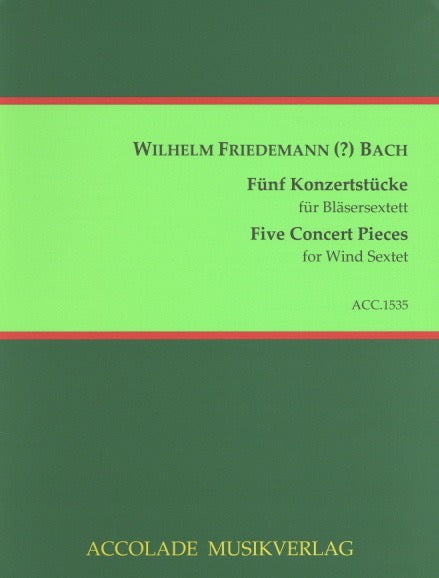
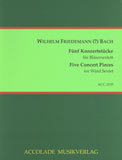
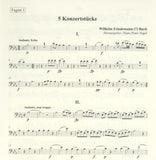
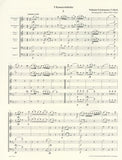
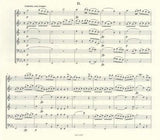
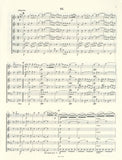
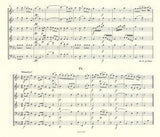
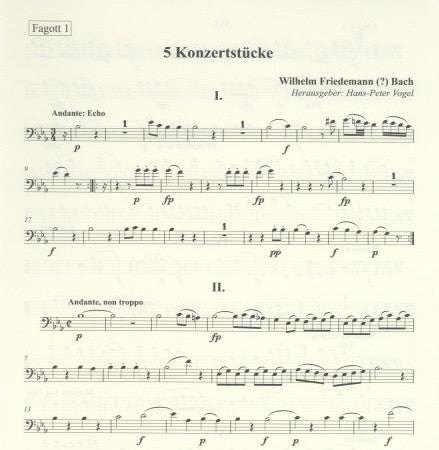
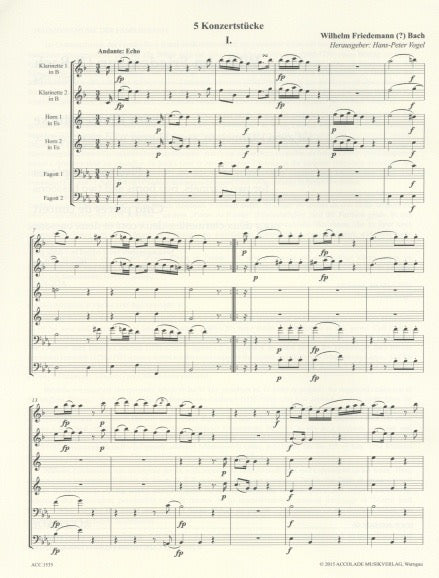
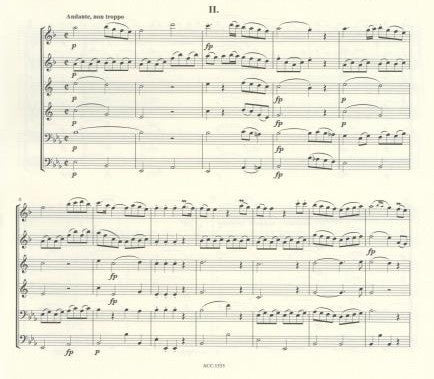
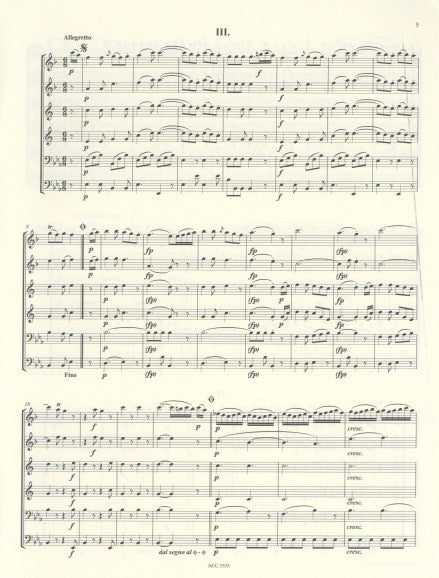
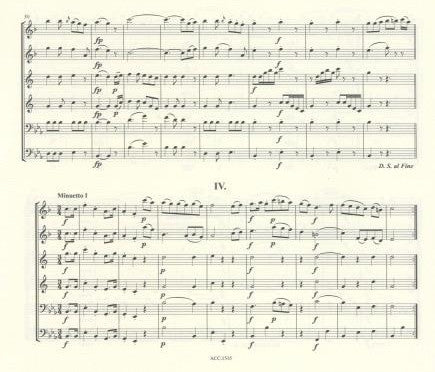
Share this item: